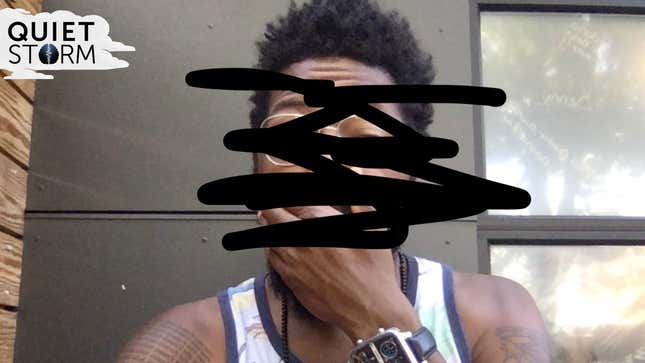
“It is weird?” I asked, in a message I copied and pasted to several people through text, on Gchat, and in Facebook Messenger, six weeks ago. The question was a followup to a revelation I also shared with the same people: I’d recently discovered, while finally seriously researching potential therapists—after telling myself for years that I’d do it—that I had what I assumed to be peculiar hangups about the process, so I surveyed my friends to gauge how normal I was.
I’ve been obsessed with the concept of normalcy since realizing that there was both a generalized “normal” and nebulous micro-normals that 1) existed and 2) I desired to fit into. As a kid in a household that existed in perpetual vacillation between “broke-ish” and “poor,” I wanted, more than anything else, to be middle class. Not rich. Just to exist somewhere that allowed us to be what I considered to be normal, and I’d study the stats and charts and reports determining where middle class began and dreamt of my parents making a dollar more than the cutoff. I believed my head to be abnormally shaped and my teeth abnormally large, and wanted those to just be as inconspicuous as possible. Since that’s impossible, I took measures to conceal my abnormalities—I refused to leave the house without wearing a hat until I was in my 20s, and I went so long without smiling in pictures that I still, at 41, have to remind myself that it’s fine.
These are just some examples, each of which I’ve somewhat grown out of, but the compulsion to know what normal is and where I fit is still present. Just now, the vulnerabilities have shifted, from things I can’t control (how I look) to things I believe I can (how I think and act). And so when I discovered, six weeks ago, that I have age, race, and gender hangups about who I’d want to be my therapist, I needed to know if that was normal, too.
The compulsion to chase normalcy stems from a pathological need to conceal my self-consciousnesses—which, considering that I wrote an entire book about them, doesn’t seem to make sense. Neither does much of what the anxiety I carry compels me to think and do. It just doesn’t match, and I find myself confused and isolated and isolating and compartmentalizing and worried and oblivious and sabotaging, for reasons that escape me. Where I get so deep in my own head—and not just deep, not just burrowed, but stuck—that I forget, or, better yet, act as if I’ve forgotten, that other people exist. I need help getting out of there before it gets too sticky for me to leave, and before people close to me tire of waiting for me to get unstuck. I’ve needed it, actually. And this is the first time I’ve sought professional help for it. But this stuckness has extended to the process of getting a therapist.
I don’t want someone close to my age, because I don’t think I’d trust their advice. I don’t want a man, because I feel he might be too empathic, and I don’t want that. And I also maybe—probably, definitely—have some weird gendered hangup about being that vulnerable with another man. Race, surprisingly, matters to me the least. Which means that my optimal therapist is a 55 to 65-year-old woman. Preferably Black, but lack of Blackness wouldn’t be a dealbreaker. Which means that I’d be more comfortable with a 60-year-old white woman than a 45-year-old Black man. And that’s weird as fuck, I think.
I can’t dismiss the possibility that this particular hangup is due to the idea, in my head, of what a “normal” therapist is, and that’s not a Black man who looks like me. I hope that’s not true, but my hope for truth has no bearing on actual truth.
But, according to my impromptu survey, it’s normal to be surprisingly—and, sometimes, shockingly—particular about who your therapist happens to be. So that was reassuring. I’m less reassured that I still needed to know.
Join the discussion! The Root is hosting its first-ever, virtual Root Institute, presented by Target, featuring several of the leading minds in our community talking about politics, culture, health, community building and social impact. Subscribe for updates today!

